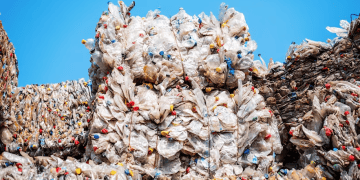Thailand has officially instituted a ban on the importation of plastic waste, a measure intended to reduce pollution and protect public health. This decision comes in response to a notable uptick in plastic waste entering the country following China’s 2018 restriction on such imports.
Before China enforced its ban, it was receiving approximately 8 million tonnes of plastic waste each year from over 90 countries. After the ban was implemented, major exporters, including the United States, redirected their waste to Southeast Asian countries like Thailand. In 2018, Thailand saw its plastic waste imports rise dramatically to over 552 million metric tons, representing a tenfold increase from pre-2015 levels. By 2023, imports remained significant at over 200 million metric tons, predominantly from Japan.
The Thai government announced the ban in 2020, expressing genuine concern regarding the environmental and health implications stemming from the accumulation of plastic waste. Environmental organizations have pointed out challenges associated with enforcing the ban, highlighting potential loopholes and underscoring the need for effective monitoring to curb illegal imports.
The implementation of this ban is anticipated to have a notable impact on global waste management practices, encouraging exporting countries to explore alternative solutions for their plastic waste. Environmental advocates stress the importance of international cooperation and the development of sustainable waste management systems to tackle the broader issue of plastic pollution.
Thailand’s initiative is part of a growing trend in the region, as other Southeast Asian nations have also taken steps to regulate plastic waste imports. The success of these bans will largely hinge on strong enforcement measures and a collective commitment from the global community to reduce plastic waste production at its source.
As Thailand moves forward with its ban, attention is being directed toward how exporting nations will revise their waste management strategies and the potential environmental benefits that may arise from a decrease in plastic waste in the region.
Your source for supply chain report news updates: The Supply Chain Report. For international trade insights and tools, head to ADAMftd.com.
#ThailandPlasticBan #SoutheastAsiaWasteManagement #GlobalWasteCrisis #PlasticPollutionControl #SustainableWasteSolutions #EnvironmentalProtection #NoPlasticImports #WasteManagementReform #GlobalCooperationOnPollution #ZeroWasteFuture #EcoFriendlyPolicies















